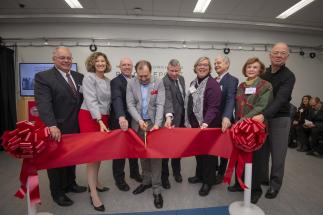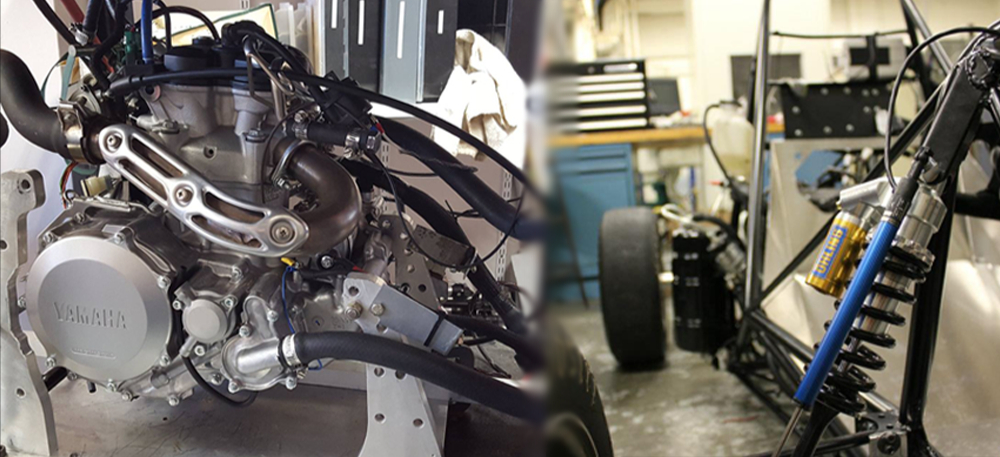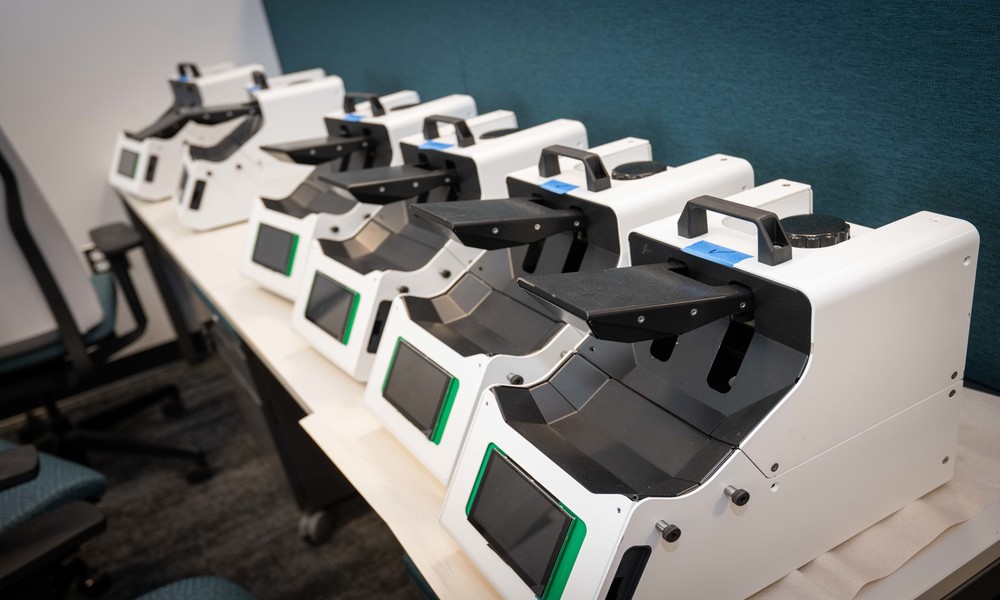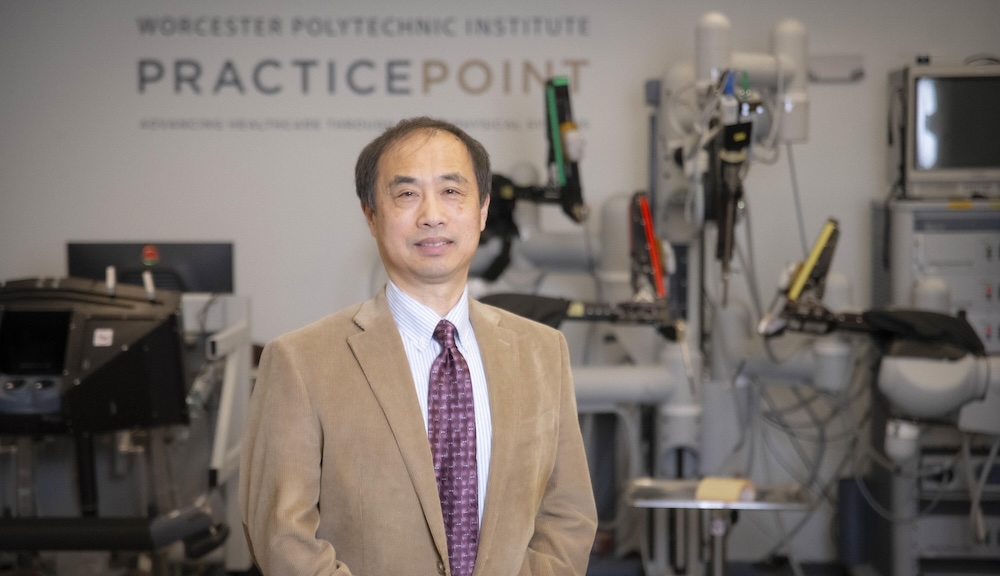With a flash of oversized gold scissors, President Laurie Leshin led a ribbon-cutting ceremony January 14 that officially opened PracticePoint at WPI, the region’s only healthcare technology research and medical device development facility.
Leshin was joined by PracticePoint director Greg Fischer; Massachusetts Secretary of Housing and Economic Development Michael Kennealy; Massachusetts Technology Collaborative (MTC) executive director Carolyn Kirk and deputy director Patrick Larkin; Boston Scientific director of corporate research Ron Lancaster; state senator Harriette Chandler; Worcester Chamber of Commerce CEO Tim Murray; and other elected officials, corporate partners, and WPI board members, faculty, staff, and students.
Conceived as a facility at Gateway Park to support the design and development of cyber-physical systems and medical technologies, PracticePoint is a collaborative ecosystem where research institutions, healthcare providers, and corporate partners will work collaboratively on new technologies and incorporate them quickly into commercially viable medical devices.
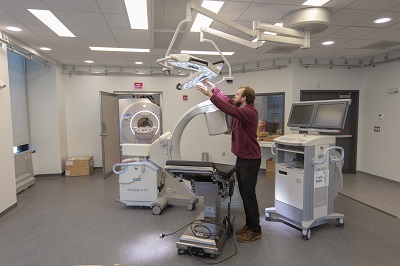
“This boils down to one word: opportunity,” said Leshin. “PracticePoint is a place of research and design where innovative thinking and creativity are allowed to flourish—with a lot of state-of-the-art machines to support the process.” PracticePoint, she said, gives partners a place to push boundaries, a place to fail, a place to iterate, and a place to eventually succeed.
WPI began construction on PracticePoint in April 2017 when the administration of Massachusetts Gov. Charlie Baker and Lt. Gov. Karyn Polito announced a $5 million capital grant from the MTC. WPI pledged matching funds; founding partners included MITRE and the University of Massachusetts Medical School. Boston Scientific soon joined as a member.
The 100-plus guests at the event toured the full facility and learned about research already underway by WPI faculty and students who were on hand. Highlights included the clinical wing—with a Home Health Suite; Patient Care Suite; Neurotech lab; Operating Room; MRI Lab—along with the Motional Analysis Lab; 3D Printing Lab; Machine Shop; and Electronics Fabrication Shop.
“All of these suites and equipment together provide a unique research-clinical setting on campus for our partners to use,” said Fischer, who is also a professor of robotics engineering. “When you add the ability to collaborate with faculty, students, and PracticePoint staff, well, there’s really nothing else like it anywhere in the state.”
Fischer pointed out that adding the ability to collaborate with faculty, students, and staff–all this co-located with advanced manufacturing capabilities–accelerates inventions to market.
Boston Scientific’s Lancaster (who noted that more than 100 WPI alumni work in his company’s corporate offices) gave his thoughts on the unique benefit PracticePoint provides by describing the physical challenges facing clinical endoscopists. They not only have to wear heavy lead aprons all day to protect from radiation exposure, but also have to shift patients, bend, twist, and reach when conducting clinical procedures. “Do it for a day, and you get tired. Do it for years, and you get injured,” Lancaster said. With PracticePoint, he said, Boston Scientific can now set up an OR with equipment and observe how endoscopists work and move, allowing device manufacturers to understand the physical demands on users and develop better tools and techniques.
The ribbon-cutting and tours were followed by a panel discussion focused on ways PracticePoint will boost medical research and development. The panel was moderated by Kirk and included Fischer, Lancaster, and Danielle Duplin, cofounder of the coworking innovation hub AGENCY of the Cambridge Innovation Center.
